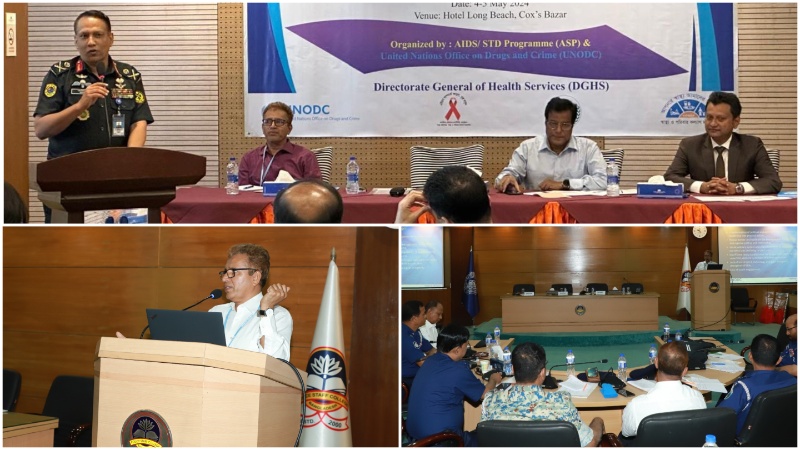Bangladesh: Enhancing Health, Justice, and Security through Harm Reduction Programs

Dhaka, Bangladesh/23 May 2024: As in many nations, drug use is a persistent challenge for Bangladesh. The National Institute of Mental Health (NIMH) estimated in 2018 that the country has approximately 3.6 million drug users, a figure that might have surged since then. Beyond the immediate socio-economic implications, drug users and their partners face heightened vulnerability to communicable diseases, including HIV, tuberculosis (TB), sexually transmitted diseases (STDs), and hepatitis. Unsafe sexual behaviors and drug consumption practices amplify this risk, with those resorting to injecting drugs being even more susceptible.
To address these challenges, harm reduction programs and capacity-building initiatives play a pivotal role in enhancing public health, ensuring justice, and maintaining security. These programs aim to mitigate the negative health impacts associated with drug abuse while promoting safer practices among drug users.
In this context, 35 officials from the Department of Narcotics Control, Bangladesh Police, Bangladesh Prisons, the Bangladesh Country Coordination Mechanism (BCCM) for The Global Fund, and civil society engaged in discussions to review the Harm Reduction Programme at a workshop hosted in collaboration with the National AIDS/STD Control Programme (NASP). Through discussions, participants identified the challenges and gaps in harm reduction programs in Bangladesh and accordingly developed an action plan for reflection in program implementation.
One significant outcome of the workshop was the formulation of an action plan that will be validated in a high-level meeting scheduled for June 2024, led by NASP and UNODC. This plan aims to address the identified gaps in harm reduction programs and enhance collaboration among various stakeholders. By doing so, it seeks to ensure that the programs are more effective and comprehensive in their approach to reducing the health risks associated with drug use.
In a separate initiative, in collaboration with the Bangladesh Police Staff College, UNODC has been conducting a series of training sessions to sensitize and equip police officials with the skills needed to counter drug-related crimes and support civil society in implementing harm reduction initiatives. In the latest training, 32 police officials were sensitised on various aspects of drug crime prevention and the importance of harm reduction strategies.
These capacity-building efforts are crucial for fostering a supportive environment where law enforcement can work in tandem with health professionals and community organizations to address drug abuse effectively. By enhancing the understanding and skills of police officials, these training programs aim to create a more coordinated and humane approach to managing drug-related issues.
The activity contributed to SDG 5, SDG 16 and SDG 17: https://sdg-tracker.org/
(Supported by UBRAF)